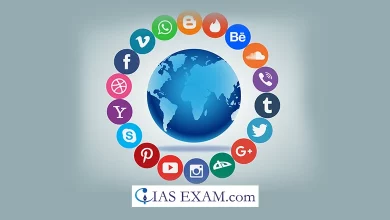
Context- Worry about “period Poverty” has fuelled crusades universally requiring the finish of the so called tampon tax.
Menstrual Products
- Menstrual products are additionally called ‘feminine hygiene’ products.
- These are designed to catch or absorb menstrual blood.
- There are a variety of products to choose from, some of which can be used again and again.
- Products that can be thrown away are: napkins, also known as sanitary towels or pads; Tampons and Expendable feminine cups made of delicate plastic.
- Reusable items include: silicone menstrual cups that can last up to five years; reusable cloth pads; padded or period-resistant underwear; Sponges worn internally like a tampon and underwear with extra absorbent layers sewn in to absorb flow.
Period Poverty
- Period poverty is the struggle that many low-income women and girls face when trying to pay for menstrual products.
- Additionally, it refers to the increased financial risk that menstrual products place on women and girls.
Impact of Period poverty
- Period poverty has an impact on more than just girls and women in developing nations; Women in wealthy, industrialized nations are also impacted.
- Girls stay home from school and work as a result; Utilize unhygienic items; and encourage girls to use risky ways of coping. For instance, in order to pay for menstrual products, some schoolgirls in Kenya have engaged in transactional sex.
List of human rights undermined by women’s treatment during menstruation
-
- Right to health: Women are less likely to seek treatment for menstrual-related disorders or pain because of stigma surrounding their periods.
- Right to education: due to low academic performance and absenteeism from school.
- Right to work: They might not accept certain jobs, or they might have to work fewer hours for less money.
- Right to equality of gender and nondiscrimination: Discriminatory behaviors can be bolstered by menstrual-related stigmas and expectations.
- The right to clean water: during periods: Additionally, they lack access to private, safe, and culturally acceptable restrooms, such as bathing facilities, as well as safe drinking water and sanitation facilities.
Tampon Tax
- “Tampon tax” (or period tax) means menstrual products being subject to value-added tax (VAT) or sales tax.
- It is not a special tax on feminine hygiene products directly.
- Arguments for abolishing it: “End Period Poverty” will come from this; Because women use them for about a week each month for about 30 years, it is a basic necessity.
- Why do nations keep it? For governments, VAT is a significant source of revenue. In 2020, VAT revenue accounted for 6.7% of GDP in countries that are members of the Organization for Economic Co-operation and Development (OECD).
Global Initiatives
- Since Kenya turned into the primary country to scrap Tank on clean cushions and tampons in 2004, no less than 17 nations have stuck to this same pattern. Among the furthest down the line nations to pass regulations to cancel the tampon charge are Mexico, England and Namibia.
- Ten additional nations have either exempted the tax on imported raw materials used to manufacture sanitary products or designated them as tax-exempt goods.
- In 2022, Scotland became the first nation to provide free sanitary napkins and tampons at designated public locations like pharmacies, youth clubs, and community centers.
- Under the new GST regime, the Indian government imposed a 12% tax on sanitary napkins in 2017; Later, this was eliminated.
Janaushadhi Suvidha
- It was launched in 2018 by the Indian government.
- It meets ASTM D-6954 (biodegradability test) standards as an oxygen-biodegradable sanitary napkin. The SUVIDHA napkin is labeled “oxy-biodegradable” because it contains a special additive that makes it biodegradable when it reacts with oxygen after use and disposal.
- The Union Department of Pharmaceuticals has launched it as part of the Pradhan Mantri Bhartiya Janaushadhi Pariyojana (PMBJP).
- The reasonably clean napkins are accessible through Janaushadhi Kendras at any rate cost of Rs.1/ – per cushion. The market cost of the comparable Sterile Napkins is around Rs. 3/- to Rs. 8 cents per pad.
- “Swachhta, Swasthya, and Suvidha” are guaranteed for the disadvantaged women as a result.





.png)



